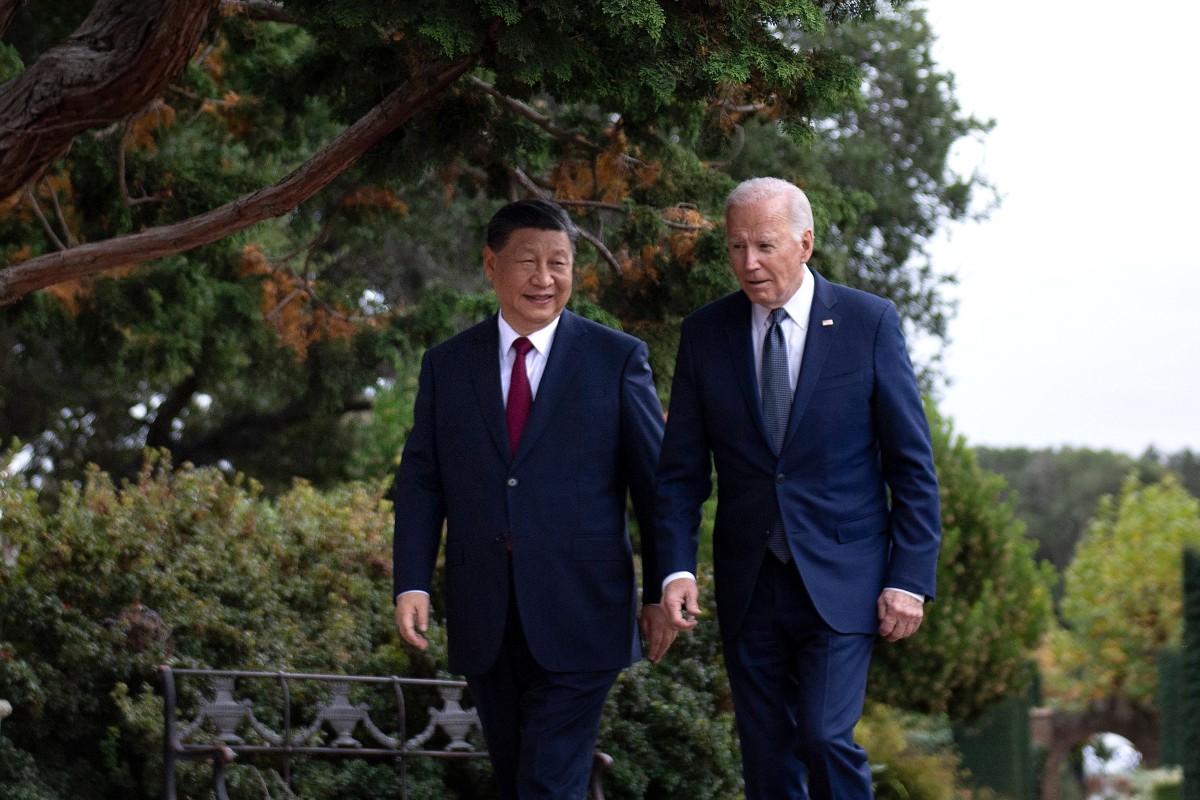Washington, United States – US President Joe Biden and Chinese President Xi Jinping held a four-hour summit meeting aimed at addressing escalating tensions and stabilizing strained bilateral ties between their nations.
The leaders met at Filoli Estate, a serene country retreat near San Francisco, marking their first face-to-face interaction in over a year. Despite initial pleasantries, the discussions delved into critical issues that have heightened friction between the world’s two largest economies.
In opening remarks, Biden said the US and China had to ensure that competition between them “does not veer into conflict” and manage their relationship “responsibly.”
Xi told Biden a lot had happened since their last meeting a year ago in Bali. “The world has emerged from the COVID pandemic, but is still under its tremendous impacts. The global economy is recovering, but its momentum remains sluggish.”
Xi called the US-China relationship “the most important bilateral relationship in the world,” and said he and Biden “shoulder heavy responsibilities for the two peoples, for the world, and for history.”
“For two large countries like China and the United States, turning their back on each other is not an option,” he said. “It is unrealistic for one side to remodel the other, and conflict and confrontation has unbearable consequences for both sides.”
Both leaders acknowledged the importance of clear communication and understanding between nations, emphasizing the necessity of joint leadership in addressing global challenges. Biden took to social media to highlight the significance of their conversation and the “real progress” made during the talks.
Central to the discussions was the commitment to restore military-to-military communications, previously severed after a visit by former House Speaker Nancy Pelosi to Taiwan in 2022. The US raised concerns over China’s military buildup around Taiwan and urged respect for the upcoming elections in the self-ruled island, slated for January.
Xi Jinping maintained China’s stance, emphasizing Taiwan as an integral part of the nation and urging the US to cease arming the island. Despite their differences, an agreement was reached to reopen military contacts and enhance cooperation on addressing the production of fentanyl, a synthetic opioid contributing to the US drug crisis.
The leaders also addressed broader geopolitical issues, with Biden urging China to use its influence to prevent further escalation in the Israel-Hamas conflict. Discussions extended to renewable energy targets and joint efforts to mitigate methane and plastic pollution, signaling a renewal of climate cooperation.
Despite these steps forward, underlying disagreements over technology, global politics, and divergent stances on international conflicts remain unresolved, highlighting the challenges in repairing the complex relationship between the two nations.

